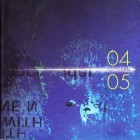Knot Garden 2005Scottish Opera
Read more about the opera Knot Garden
The 2004-05 season of Scottish Opera consisted of six events, five being full-scale stagings. Proceedings opened with a double-bill of early twentieth century classics, Duke Bluebeard's Castle and Erwartung. The autumn programme also contained a revival of Tosca, the vintage 1980 staging by the late Anthony Besch. The new year began with a rare sighting in Scotland of an opera by Tippett, The Knot Garden. Handel's wonderful setting of Restoration comedy, Semele, followed, and the fifth full-scale production was a revival of Fidelio, allowing the company to close down for a year with a glorious finale. The early part of 2005 also featured a rare concert version of Andrea Chénier, as well as the usual Highlands and Islands tour of Essential Scottish Opera.
Scottish Opera's neglect of the works of Tippett had been conspicuous when the company, in the midst of its worst financial crisis, still stuck to its courageous policy of giving a Scottish premiere to The Knot Garden. In this they became the only British company to celebrate the centenary of a notable composer who has, in the years since his death, shown signs of becoming unfashionable, just as the reputations of Finzi, Vaughan Williams and many other composers have done in the past.
It should be noted that the Edinburgh Festival has never performed one of Tippett's operas, and the only previous essay by Scottish Opera was a not entirely successful 1988 staging of The Midsummer Marriage. This was a co-production with Opera North, the first of a proposed series of 20th century classics which has not been as fruitful as it could have been. That staging did at least introduce Scottish audiences to the work of Tim Albery as director, and to Antony McDonald as costume designer. It was McDonald who had a significantly greater success with The Knot Garden, by this stage of his career directing, as well as designing the whole show.
The overall success of the production was highly gratifying, and a great relief. It is to be hoped that a revival is in the pipeline to allow audiences to get to know the piece better. Tippett's libretto has always come in for criticism, but its faults seem minor compared with those that hamper his later operas The Ice Break and New Year. Richard Armstrong's control of the performance was marvellous, producing superb playing from the orchestra, and there was not a weakness in the stage team either. Apart from Jane Irwin on majestic form, perhaps Rachel Hynes should be mentioned, as having a complete triumph in this difficult role which was originally one of the early successes in the career of Dame Josephine Barstow.

